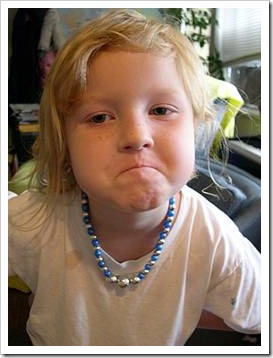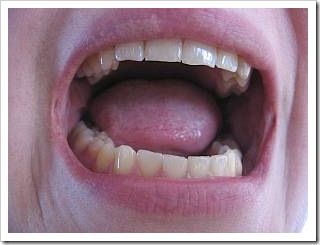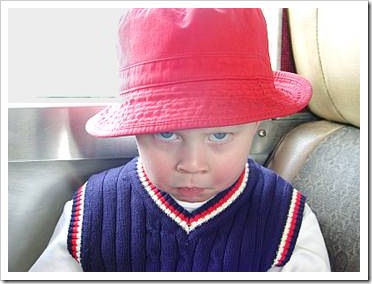 Too often, I hear parents saying the words “kids” and “discipline” in the same sentence. Sometimes, they add “bad behavior”, “naughty” and “rude” for good measure. When I look at them, their faces typically express anger and their whole body language is tense and stiff.
Too often, I hear parents saying the words “kids” and “discipline” in the same sentence. Sometimes, they add “bad behavior”, “naughty” and “rude” for good measure. When I look at them, their faces typically express anger and their whole body language is tense and stiff.
“What’s wrong with my kids?” these parents ask, “How can I get them to do as I say? How can I get them to stop misbehaving and do the right thing?”
Can you identify with any of this? Are your kids upsetting you on a daily basis with their disobedience? Do you also wish your kids would just sit still and be quiet already? Do you wish your kids would finally do as they are told?
If you have answered “yes” to some or all of the questions above, what I am about to write may be very strange to you. It may even be upsetting. But bear with me and read to the end, because there is a lot of value in this post for you (I know because I also used to wish all those things about my own kids).
Let’s examine some of the words in bold letters.
Are you living in an absolute world?
Bad – using this word implies absolute good and bad. Unfortunately, when you say that something “is bad”, you are actually saying you are feeling unhappy about it and you are trying to impose your standards on somebody else (like your kids).
William Shakespeare’s Hamlet says, “There is nothing either good or bad, but thinking makes it so”. Goodness is based on your point of view. For example, when a lion eats an antelope, the antelope dies, but the lion lives. Is this good or bad? Well, it depends who you ask.
Once you acknowledge that your feeling is personal and subjective, your mindset will begin to change.
 Wrong – this word also comes from the assumption that what you consider to be right is right for everybody, but is it? Is it right to get up in the morning when it is 7am EST? Not if you live in Australia (unless you work nights).
Wrong – this word also comes from the assumption that what you consider to be right is right for everybody, but is it? Is it right to get up in the morning when it is 7am EST? Not if you live in Australia (unless you work nights).
Open your perspective to include your kids’ comfort and interests and consider that what seems wrong to you may be perfectly reasonable for them.
Upsetting – thinking your kids are upsetting you is based on the assumption that someone else can cause you to feel something and that you have no control over that feeling. Reality is quite different.
Let’s say you become upset when your kids ran around and made noise. Could this be related to your own state of mind when you come home from work? If this were the morning of the 3rd day in a Pacific island resort, would you be as upset with them? Running around and making noise is what kids do. They are probably unaware of how you feel and certainly do not mean to upset you.
Take responsibility for how you interpret your kids’ actions and how you feel about them before you blame the kids for it.
Identity vs. behavior statements
Naughty and rude – there is a very big difference between telling a child “Your behavior is inconsiderate” and saying “You are a naughty kid” or “You are rude”. Every person, including the most righteous parent, does things that upset others, inconvenience someone or appear to be impolite. Since we cannot read other people’s minds, even the best-intended act can be taken as rude by somebody.
 Having lived in different cultures around the world, I can tell you from personal experience that the same thing can be considered an awesome joke in one place and absolutely horrible in another, and sometimes, you can be unaware.
Having lived in different cultures around the world, I can tell you from personal experience that the same thing can be considered an awesome joke in one place and absolutely horrible in another, and sometimes, you can be unaware.
As surprising as this may seem, your kids are new to the world and to their own culture. What you know as an adult, they still have to learn, but that certainly does not make them bad, naughty, rude or anything like that. No matter what they do, your kids are good little people who need your guidance.
When they do something strange, unacceptable, loud or awkward, stop yourself from calling them names, take a deep breath, go down to your kids’ eye level and ask them what happened. Focus on their feelings and their actions and the rest will be very different from what you have been used to, I am sure.
Positive focus
Disobedience and misbehaving – many of the parents I mentioned earlier focus on their kids’ non-compliance. They watch their kids like hawks, trying to catch any defiance, messiness or loudness and then pounce on them with bitter accusations. Over time, they also keep score of the number of undesirable acts on their kids’ part and mention that score.
Those same parents often miss the other side of their kids’ behavior completely, because they are not looking for it. Moreover, when they expect their kids to “stop misbehaving” or to “not disobey”, they reinforce their own negative focus.
To get out of this (very vicious) cycle, spend some time counting good things your kids do. Keep a written score for a while. You will be shocked. Guaranteed.
Also, find positive opposites for what you do not want. Try asking your kids to relax instead of telling them to stop misbehaving. Ask them to do their best and be fair in assessing what they can realistically do.
Obedience vs. motivation
Discipline can come from the outside (you) or from the inside (your kids).
Obedience is when you decide what your kids should do and what they should not do and you aim to force them to live by your standards, whether they like it or not. In essence, when you rate your own preferences above theirs, you are teaching them to be self-centered and you are giving them an example for ignoring the feelings of others. I know this is an annoying conclusion, but you have to admit it is inevitable.
Motivation is when you find out what makes your kids do things and, as importantly, find out what stops them from doing things. Then, you use this information to encourage them to do what you think they should do by convincing them it will be best for them. For more information, read the Motivating Kids series of posts.
Shift your energy
In the same way that your kids are good people who sometimes do silly things, you are a good person who is sometimes trapped by your beliefs and needs.
Here is something you can do to totally shift your energy from struggling with unruly wild creatures to sharing love and harmony with your kids (yes, this is for men too, maybe even mostly for men).
 Find a quiet spot and a quiet time, so that you are not disturbed for a few minutes. Sit in a comfortable place, close your eyes and take several deep breaths.
Find a quiet spot and a quiet time, so that you are not disturbed for a few minutes. Sit in a comfortable place, close your eyes and take several deep breaths.
Now, revisit a scene in which you tried to get your kids to do something and they did not, or one in which your kids did something you find unacceptable (can be one kid, of course). Freeze the scene in your mind and then float up from your body and look at the scene from above the middle, so that you can see everybody equally well.
Next, float down, position yourself right behind your child and look at yourself. See your angry expression, your large size and your huge importance in your child’s life. Look around you from your child’s position and see the rest of the situation. Finally, float into your child’s body and feel what he or she might have felt during this scene.
Float out of the child and stand facing yourself. Knowing now what your child felt, hug yourself and comfort yourself, feeling your tension dissolve and seeing your face relax and appear loving and understanding.
Float back into yourself and immerse yourself in those good feelings. When you are ready, open your eyes.
Feels good, right?
Loving parenting,
Gal











